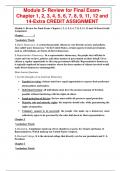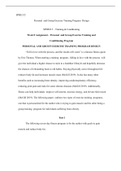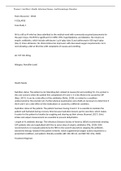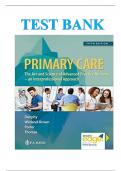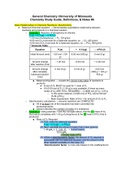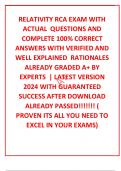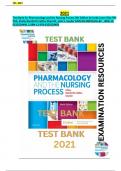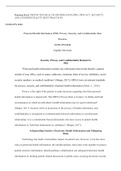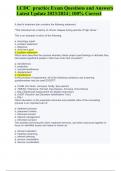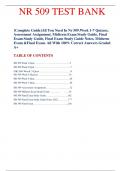Exam (elaborations)
GOVT 2305 Module 5- Review for Final Exam- Chapter 1, 2, 3, 4, 5, 6, 7, 8, 9, 11, 12 and 14-Extra CREDIT ASSIGNMENT GOVT 2305 Module 5- Review for Final Exam- Chapter 1, 2, 3, 4, 5, 6, 7, 8, 9, 11, 12 and 14-Extra CREDIT ASSIGNMENT GOVT 2305 Module 5- Rev
- Course
- Institution
GOVT 2305 Module 5- Review for Final Exam- Chapter 1, 2, 3, 4, 5, 6, 7, 8, 9, 11, 12 and 14-Extra CREDIT ASSIGNMENT GOVT 2305 Module 5- Review for Final Exam- Chapter 1, 2, 3, 4, 5, 6, 7, 8, 9, 11, 12 and 14-Extra CREDIT ASSIGNMENT GOVT 2305 Module 5- Review for Final Exam- Chapter 1, 2, 3, 4, 5,...
[Show more]
